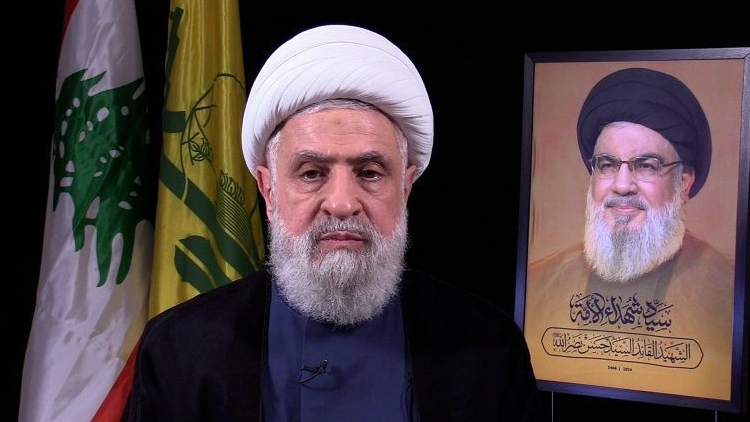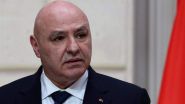
On the fifth anniversary of the assassination of Qassem Soleimani, the former commander of the Quds Force (Iran's elite Islamic Revolutionary Guard Corps unit), and his Iraqi lieutenant, Abu Mahdi al-Muhandis, Hezbollah’s Secretary-General Naim Qassem reiterated the slogan of “the resistance’s victory over Israel,” emphasizing that the former “has not been defeated.”
Qassem highlighted Hezbollah’s “wish” to “elect a president of the Republic through consensus among parliamentary blocs in open sessions to pave the way for a new chapter in Lebanon.” He stressed that the election of a new president would herald “a positive era of stability, strengthened national unity and internal cooperation to rebuild the country.”
However, the entirety of his speech opposed this stance, as he remained anchored in a subjective evaluation of the situation stemming from the war between Hezbollah and Israel. The contradiction was glaring: despite Hezbollah’s so-called victory, Qassem called for state intervention to preserve the status quo established by the ceasefire agreement with Israel, signed on November 27, 2024.
Still, adhering to his familiar and unchanging rhetorical question – “Isn’t the resistance strong and deterrent?” – Qassem provided a subjective assessment of the ceasefire Hezbollah had agreed to. “Despite the massive destruction and Israel’s criminal aggression, an agreement was reached: the enemy requested a ceasefire, and we accepted it,” he asserted. He further stressed, “Thanks to the resistance, its strength and its resolve, the enemy was compelled to request a ceasefire.”
In the same spirit, the Secretary-General of Hezbollah repeatedly underscored the enduring strength of the resistance. “The resistance will persist,” he confirmed, rejecting the idea that Lebanon should face a fate similar to Syria's. “Israel has occupied a part of the Golan Heights that is one and a half times the size of Gaza, moving through it freely… Without the resistance, Lebanon would have faced the same fate as Syria.”
Qassem dismissed the idea that Hezbollah was bound by the terms of the ceasefire agreement, whether it pertained to the sixty-day duration or the party's operational zone: “The decision on when, how and with what weapons to retaliate lies with the resistance leadership... We are under no obligation to wait beyond the sixty days outlined in the ceasefire agreement.”
Once again, Qassem addressed the criticism directed at Hezbollah, particularly regarding its military shortcomings and the disastrous aftermath of its unilateral decision to confront Israel. He countered this criticism with tendentious arguments: “The resistance is a matter of faith, not weapons;” “Material damage can be compensated;” “This war represents a rebirth for Lebanon.”



Comments